New Delhi: Looking to assure customers and investors about the health of their banks and the state of the Indian economy, Indian bankers have a new favourite catchphrase — “The worst is over.”
Be it the chairman of India’s largest state-run lender State Bank of India or chiefs of other private sector banks like HDFC Bank, bankers have been quick to forecast better times ahead for the economy, the banking system and the performance of their respective banks.
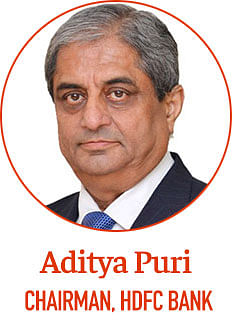 In July, HDFC Bank chairman Aditya Puri said the doom in the economy was over and it could only grow upwards of the 5.8 per cent it clocked in the March quarter of fiscal 2018-19.
In July, HDFC Bank chairman Aditya Puri said the doom in the economy was over and it could only grow upwards of the 5.8 per cent it clocked in the March quarter of fiscal 2018-19.
The data for the June quarter, however, had a different story to tell. India’s GDP slowed to a 6-year low of 5 per cent, taking both the Narendra Modi government and the central bank by surprise.
What bankers say
Among the things bankers have been positive about, the end of the rising bad debt cycle is one.
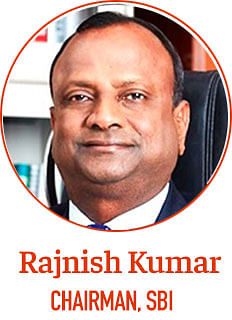 Last year, SBI chairman Rajnish Kumar declared that the “worst is over” while declaring the financial results of the bank in the June 2018 quarter.
Last year, SBI chairman Rajnish Kumar declared that the “worst is over” while declaring the financial results of the bank in the June 2018 quarter.
Nearly a year later, in June 2019, Yes Bank chief executive Ravneet Gill showed the same positivity about the bank’s prospects and assured investors that there were no surprises in store over bad debts or fresh slippages.
More recently, IndusInd Bank CEO Ramesh Sobti said this month that the woes of the financial sector will ease soon, pointing out how banks have started lending to non-banking finance companies (NBFCs) and the real estate segment. He couldn’t resist adding, “The worst is over”.
In the aftermath of the Rs-14,000 crore fraud involving jewellers Nirav Modi and Mehul Choksi last year, Sunil Mehta, former managing director and CEO of Punjab National Bank, was among the first ones to jump on the “worst is over” bandwagon.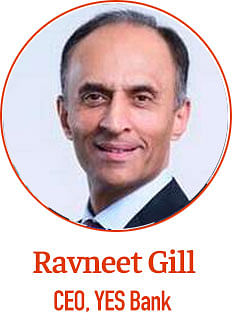
Also read: With no end to credit woes, Modi govt under pressure to take new steps to revive growth
What the data says
Despite these proclamations from bankers, data from the Reserve Bank of India (RBI) shows not everything is as dandy as they would like people to believe.
In its monetary policy report released earlier this week, the RBI pointed out that the bad loans issue that has plagued the Indian economy is far from over.
“Credit quality has deteriorated with both the stressed assets ratio and the non-performing assets (NPA) ratio increasing marginally in June 2019 after four successive quarters of decline,” the central bank said.
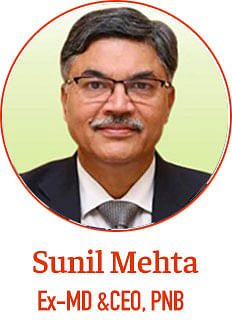 It added that a sector-wise analysis indicated the NPA ratio deteriorated for all sectors in June, barring industry.
It added that a sector-wise analysis indicated the NPA ratio deteriorated for all sectors in June, barring industry.
Stressed assets and the amount of NPA had peaked in March 2018 after the RBI’s asset quality review of Indian banks forced lenders to classify more of their stressed accounts as NPAs and forced them to keep aside more funds as provisions for these loans.
By end March 2018, non-performing loans had inched to 11.2 per cent of gross advances before coming down to 9.1 per cent in the quarter ended March 2019. However, they rose again to 9.6 per cent in the quarter ended June as the ongoing economic slowdown squeezed businesses, forcing them to default on payments.
‘We don’t know’
Banks are in the process of declaring their second quarter results and a clearer picture will emerge if the upward trend in NPAs has spilled over to the quarter ended September.
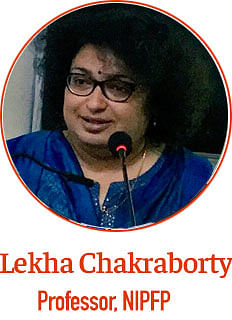 Lekha Chakraborty, professor at the National Institute of Public Finance and Policy, said cleaning of banks’ balance sheets is a serious issue. “We don’t know if it is the tip of an iceberg or if the problem has been resolved.”
Lekha Chakraborty, professor at the National Institute of Public Finance and Policy, said cleaning of banks’ balance sheets is a serious issue. “We don’t know if it is the tip of an iceberg or if the problem has been resolved.”
Bankers may be making these statements based on their “hope” rather than based on actual facts, said J.N. Gupta, co-founder and MD of Stakeholder Empowerment Services.
“These statements can be considered as deliberately misleading only if we assume that the bankers know everything and that is not the case. In fact, in the financial markets, symptoms are always there if things are going to worsen. But many often fail to recognise them or are complacent about it,” he added.
Also read: Lending to companies unlikely to see a revival anytime soon after shocking collapse


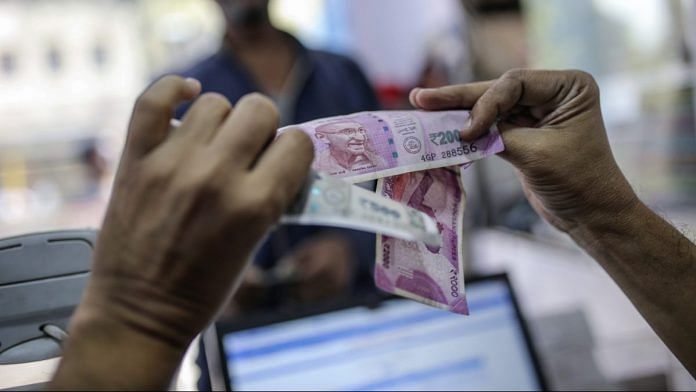

Going by the quality of declaration by Banks in the past, it does not invoke confidence. Traditionally banks have been more reluctant than forthcoming in declaring accounts as NPA for more than one reason. One of course is for protecting reputation but very often they dither from naming accounts of rich & powerful due to their influence.
Indians have forgotten how to speak truth to power. I would rate that as one of the top reason why things have gone so horribly wrong in the first term and are showing no signs of improvement in the second. The trouble with creating an echo chamber is that our own lullabies then soothe us to sleep. 2. The four gentlemen featured in this column know their shekels. Call them occasionally to North Block and tell them. Please educate us. Show us the way forward.